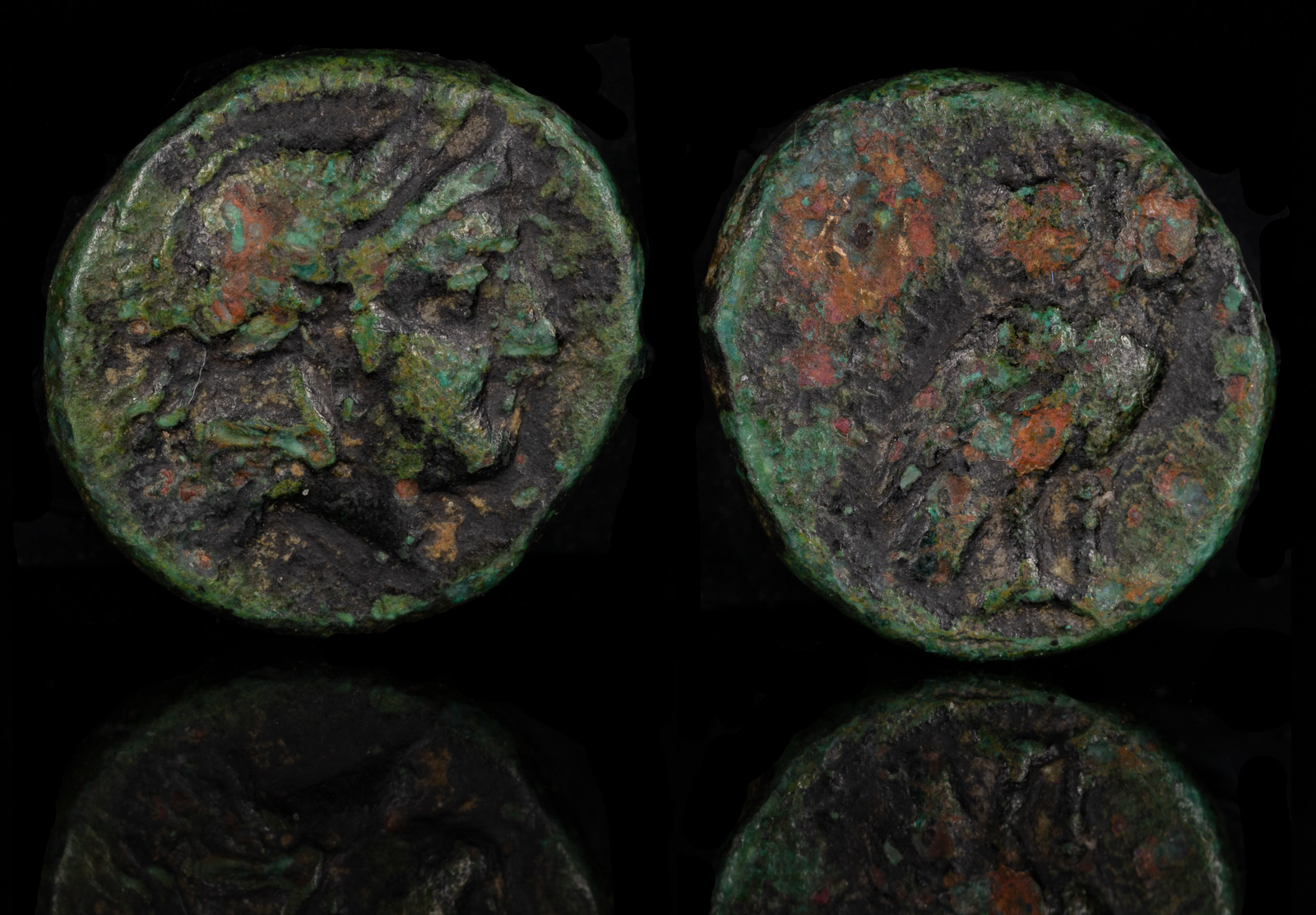
Troas, Sigeion Circa
Issued by Chares
350 BCE AE12 2.06g
Helmeted head of Athena right
Owl standing right, head facing
BMC 19-20
This coin from Sigeion was most likely minted by Chares, since that was his favorite vacation spot. Technically the top general under Athenian command, Chares was a symbol of how far that city had fallen.
Chares spent a fair deal of time combatting the forces of Philip II, and an even larger amount of time doing his own thing. He was first sent against Philip when he was taking down the Chalkidian League. Chares accomplished a minor victory, for which he threw a lavish party, but little more. Shortly after that, Philip conquered Olynthos and the Chalkidian League was no more.
He was even more inept when he was sent by Athens to defend Kersebleptes against Philip II. As Philip marched on, he met absolutely no resistance from the Athenians under Chares. Absolutely none, because they weren’t even there. Where were they? Even Athens didn’t know, which was a major embarrassment. Imagine the US sent thousands of soldiers to some remote country, but they never showed up. Most likely, Chares persued his own endeavour, but we don’t know.
Chares again was arrayed against Philip when he besieged Byzantion, but again he accomplished little. In fact, rather than facing off against Philip, he sacked the cities of several allies. Athens replaced him shortly thereafter.
He finally did confront Philip in two battles involving Thebes. The first was to aid Amphissa, which ended in defeat. The second, and far more disastrous, was the Battle of Chaeronea, in which his forces and those of Thebes were routed. This cemented Philip‘s hegemony over Greece.
The one strong trait Chares did have was deflecting blame. He did this during a much earlier campaign when he blamed his fellow generals for another defeat. He must have been persuasive, since Athens bought it.
In this case, one of the other generals, Lysicles, was executed for the failure at Chaeronea. Chares took this opportunity to return to Sigeion. When Alexander the Great arrived, Chares paid his respect to him, then joined the other side. He aided Autophradates, but again his military exploits were ineffective and he was soon captured.
355 BCE
Chares given joint command of the Athenian forces. They choose not to engage with the enemy, and Chares and Aristophon prosecute their colleague Iphicrates for the event. He is acquitted.
Chares takes up service with the breakaway satrap Artabazos. Artaxerxes III Okhos pressures Athens, and Chares is forced to leave. Artabazos then hires Thebans.
When Philip II marches against Kersebleptes, Athenian troops under Chares are sent against Macedonia. However, they soon disappear and Athens has no idea what happened to them.
Chares spends several years relaxing at Sigeion, where he has taken control.
With the arrival of Alexander the Great, Chares pays respects to him from Sigeion.
Chares is given command of Mytilene by Autophradates, but he is forced to surrender it to the Macedonians.